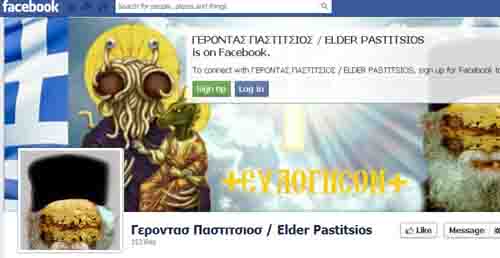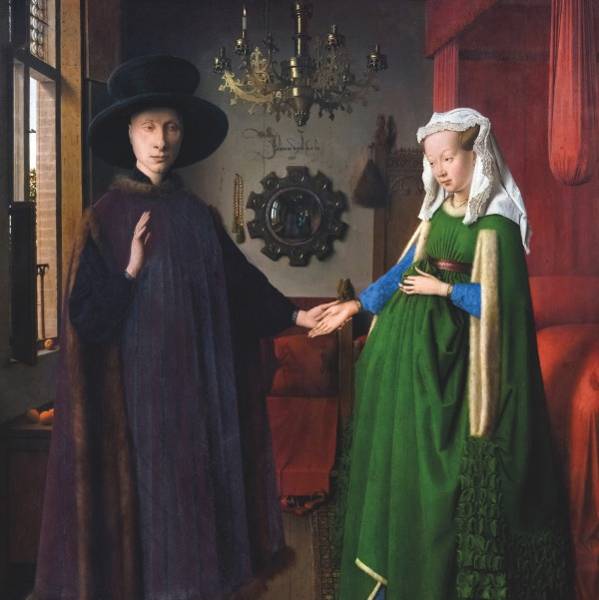
What the law says:
Article 198 of the Greek Penal Code:
1. One who publicly and maliciously and by any means blasphemes God shall be punished by imprisonment for not more than two years.
2. Except for cases under paragraph 1, one who by blasphemy publicly manifests a lack of respect for the divinity shall be punished by imprisonment for not more than three months."
Article 199 of the Greek Penal Code: One who publicly and maliciously and by any means blasphemes the Greek Orthodox Church or any other religion tolerable in Greece shall be punished by imprisonment for not more than two years."
Article 13 of the Greek Constitution:
1. Freedom of religious conscience is inviolable. The enjoyment of civil rights and liberties does not depend on the individual's religious beliefs.
Article 16 of the Greek Constitution:
1. Art and science, research and teaching shall be free and their development and promotion shall be an obligation of the State
How the law is used:
Greece. The cradle of democracy; an ancient civilisation; home of ouzo, moussaka and the Santorini sunset. From the complex polytheistic beliefs and rituals of the ancient Hellenic culture to the current established Orthodox Church, Greece has witnessed thousands of years of changing belief. The Greek Orthodox Church survived the centuries Greece was a part of the Holy Roman Empire, and lasted through the 400 years of Ottoman rule. It also played an important role in the Greek Independence by acting as the preserver of the Greek national identity. The Church is still going strong, with around 80% of people professing a belief in God, even if not many attend services regularly.
Today Greece is facing tough times. The country’s economic disaster has been a headache for the EU, and followed constantly by the media. Harsh economic climate and a record unemployment of 27% have led to political turmoil and to the rise of ultranationalist Golden Dawn party. The party, often referred to as neo-fascist or even neo-Nazi, has been blamed for the rise of violence and attacks targeted at immigrants. The Golden Dawn is also known for running “Greeks only” blood banks and food rallies. Now holding 18 seats in the 300-seat Parliament, Golden Dawn is predicted to gain up 15% support in the local elections next year.
The economic crisis has also brought other ultraconservative tendencies. Freedom House recently lowered Greece’s press freedom status from “free” to “partly free” due to the "increasingly hostile legal, political, and economic environment for the press." For example, journalist Kostas Vaxevanis, has been charged for “breaching data privacy” for publishing a list of Greek holders of Swiss bank accounts, for which he is facing two years in prison. The charge has been heavily criticised by supporters of freedom of speech, and has been said to prove that the judicial system is under the control of the elites. The Golden Dawn and affiliated far-right media have also contributed to diminishing press freedom: journalists critical of their ideas have been harassed, ridiculed and even physically attacked.
Rising conservatism has in addition brought on a surge in blasphemy charges. While Greece has a quite wide ban on blasphemy, covering God, the Orthodox Church, and any “tolerable religion”, blasphemy charges have not always been widespread. In June 2012, three main actors in the play “Corpus Christi”, scheduled to premiere in a few days were arrested for blasphemy. The play, originally from the USA, depicts Jesus and his apostles’ lives as modern day gay men living in Corpus Christi, Texas. Unsurprisingly, it has been controversial in other countries too – Greece is nevertheless the first to arrest any actors. The play’s premiere was moved from June to October, but was on the day was delayed by hours because of a violent protest outside the theatre. The protest was led by reactionary Orthodox groups and members of Golden Dawn, including MPs (the party is also notoriously anti-gay), who threw rocks on people attending the play. The protesters also physically attacked a journalist covering the premiere, who later wrote that the police did nothing to stop the violence, or to prevent one of the Golden Dawn members freeing an arrested fellow protester. The party is said to enjoy a lot of popularity among the extreme members of Greek’s police force. A Golden Dawn MP, Illias Kassidiaris later commented: "In any case where the religious sentiment of Greeks is insulted, the Golden Dawn will react dynamically. If someone tries to stage a play making fun of Muhammad in a Muslim country, he will lose his head. They won't react peacefully as Greeks do."
Indeed, the Golden Dawn didn’t lose time in defending the Orthodox Church. In September 2012, Philippos Loizos was arrested and charged for blasphemy after an MP had complained about his Facebook page. Loizos was running a satirical Facebook page depicting the monk Elder Paisios. The Facebook page made fun of him in an almost Pastafarian sense by renaming the Elder Pastitsios (a Greek pasta dish), and featured Photoshopped images of the monk with pasta on his face. The page also featured satirical posts criticising the Orthodox Church and faith. Paisios, who is a very popular religious figure, died in 1994. Loizos had also started a false rumour about an amulet which had been blessed at the grave of Paisos healing a comatose drug abuser. The story was widely circulated as a “true” miracle, and even printed on a nationalist newspaper. Clearly the Golden Dawn didn’t find his experiment amusing.
Even without (wanted or not) political supporters, the Greek Orthodox Church is a powerful institution. Importantly, it is the country’s second largest landowner after the government. This is due to a fortuitous historical context: when the Greeks revolted against the Ottomans, all the occupiers’ religious properties were automatically given to the Orthodox Church, instead of being distributed evenly. In the tough economic times, the Church has come under a lot of criticism for not paying much tax (only the head office pays taxes). In fact, before the recent austerity measures, the Church was exempted from all taxes. Also, the government – in exchange for the right to use the Church’s lands – pays the priests’ salaries. This practice still continues, albeit with reduced salaries and fewer new priest appointments.
The difficult economic situation can be seen as both a blessing and a curse for the Greek Orthodox Church. Besides the rise of extremely conservative religious ideas alongside right-wing politics, the times of uncertainty are likely to bring more and more people seeking comfort from the Church and its organisations. On the other hand, the Church will need to start liquidising its assets if it wants to keep properly running its parishes and charities, as the government’s purse is tightening. Blasphemy charges against those who insult the “historical religion” are likely to keep appearing with the heightening extremist political tendencies: in times of trouble, pointing the finger at foreigners and wishing a return to “good old times” is an easy diversion. But, how far back does one need to reach for those golden days? Maybe Zeus’ feelings should also be protected?
What you can do:
A petition to drop charges against Philippos Loizos, and to reform Greece’s blasphemy laws can be found here http://www.change.org/petitions/greek-parliament-free-geron-pastitsios-and-abolish-greek-anti-blasphemy-laws

